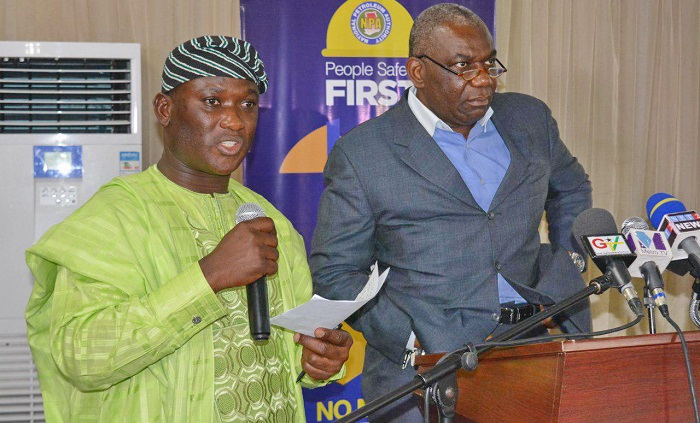
NPA to assess filling stations to ensure safety
The National Petroleum Authority (NPA) has engaged a team of technical persons to conduct risk assessment of all retail petroleum stations across the country.
The team, which will go round retail outlets to check on structures and the integrity of processes deployed at the outlets, will also assess the siting, refilling, outward sale of gas and the entire value chain system at the outlets.
The team will also unearth lapses that exist in the organisational structure of oil marketing companies (OMCs).
The risk assessment team, according to the Chief Executive Officer (CEO) of NPA, Mr Hassan Tampuli, is independent of the authority’s internal arrangements.
The outcome of the team’s assessment will be measured alongside the long-term effect of their recommendations.
Significance
Mr Tampuli, who was speaking to the Daily Graphic in Accra on the sidelines of a Petroleum Safety Campaign programme last Friday, said the industry needed such an independent assessment body to ensure that activities of retail outlets conformed with best practices.
“There are few retail stations that have safety officers and also conduct periodic fire drills. So the risk assessment would help the authority to identify the challenges and put in place mechanisms to prevent the recurrence of fire incidents,” the CEO said.
![]()
Mr Agyarko (right) and Mr Tampuli (left) in a discussion with Mr Seidu, the CEO of Bisvel Energy
According to him, most of such incidences were as a result of the manner in which petroleum products were discharged at the retail stations.
Guidelines
Mr Tampuli also stated that although the present NPA guidelines required retail operators to send periodic reports to the authority for assessment, such provisions had not been adhered to.
“The risk assessment, however, has provisions that compel the operators to submit their reports indicating accidents and near misses from product discharge, sales and maintenance which occur at retail stations,” the CEO added.
He indicated that a safety campaign embarked upon by the NPA on the theme: “People’s Safety First,” would engage all stakeholders on the need to ensure safety in their operations to reduce mishaps in the petroleum industry.
![]()
Mr William Tewiah CEO of Zen Energyraising some queries at the event
As part of the campaign, Mr Tampuli said a Safety Day would be observed every year to raise consciousness on the operations in the downstream petroleum sector.
He also stated that safety workshops and public sensitisation programmes for pump attendants and operational staff of OMCs and depot managers would be organised.
“We shall have public sensitisation programmes through the media to raise awareness of the collective responsibility on safety.
“The safety campaign will not be limited to education alone; there will be intensive inspections and monitoring of safety benchmarks in petroleum facilities in the country and where applicable sanctions will apply,” Mr Tampuli added.
Fuel smuggling
For his part, the Minister of Energy, Mr Boakye Agyarko, observed that fuel smuggling still persisted because the players in the sector were condoning such acts.
Concerning threats to lay off workers if illegal dumping of exported petroleum products on the Ghanaian market was not curtailed, Mr Agyarko claimed that “In most cases, the criminals among you, when they are caught, you will be the first to appeal for their release, threatening not to vote for the government if pushed through,” he said.
![]()
Some industry players at the safety campaign launch
Petroleum products meant for export to countries such as Mali and Burkina Faso, often found their way back onto the local market. The products do not attract taxes and levies owing to ECOWAS protocols of which Ghana is a signatory.
As a result, such products are cheaper on the local market, thus denying the government revenue and also causing the OMCs to lose business.
“Sometimes, it takes a certain boldness in leadership to implement certain decisions, all of us must get involved in changing our attitudes,
“Let us not adopt the posture of scepticism, since that could take you out of business,” Mr Agyarko emphasised.
Writer’s email: delarussel@gmail.com

